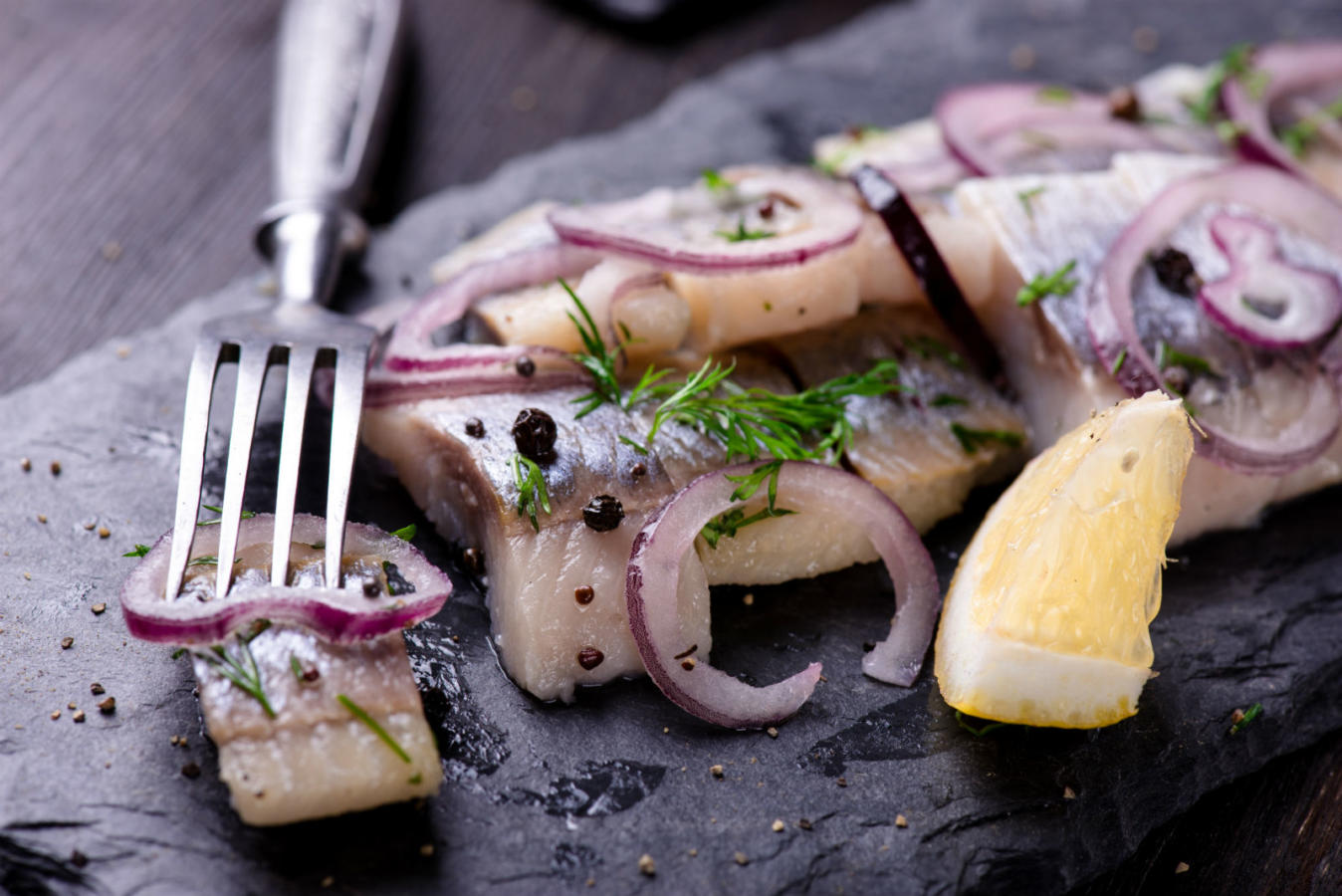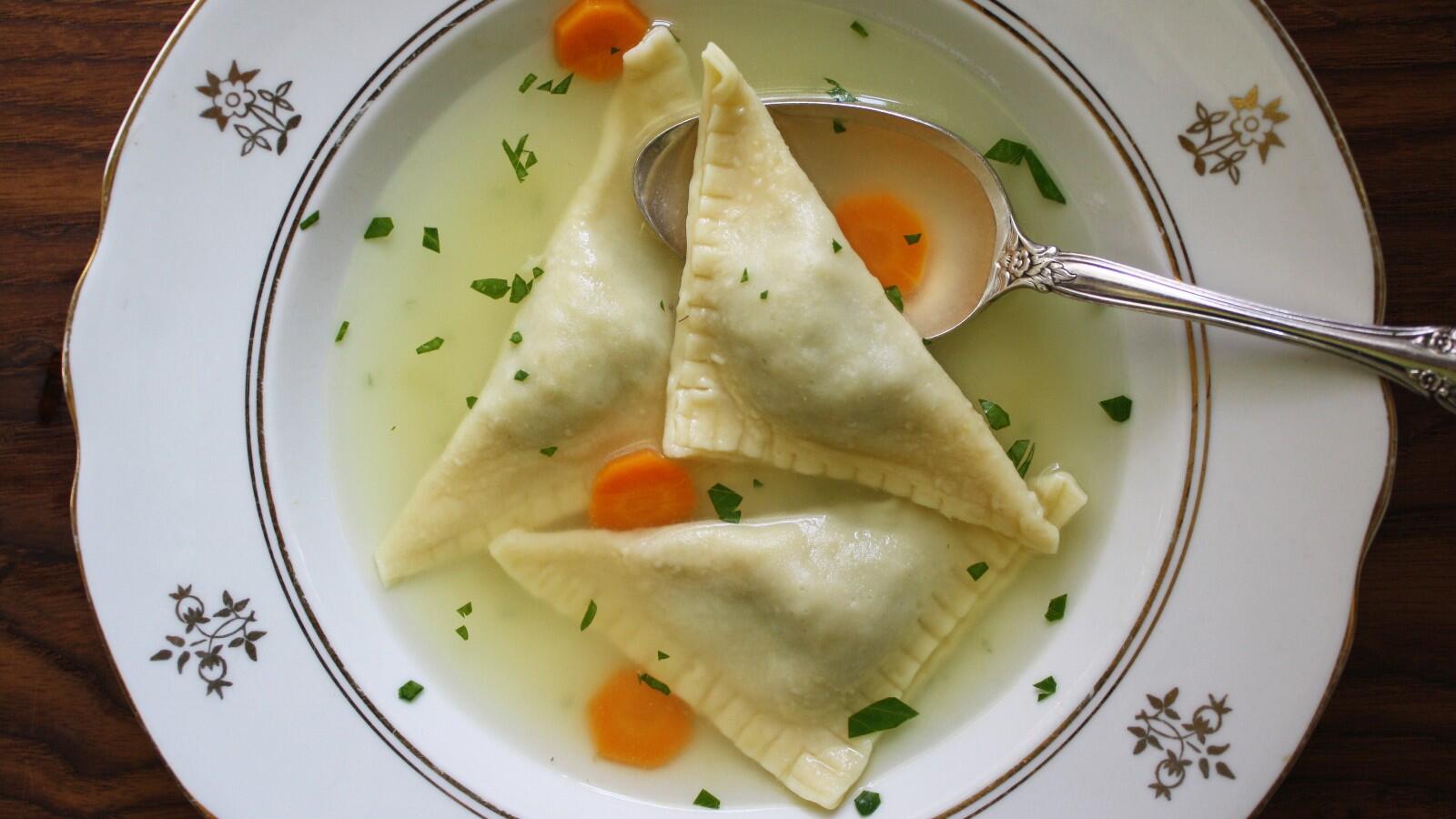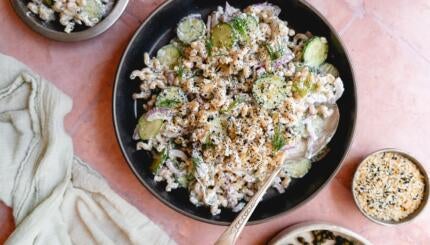The pandemic has influenced so many aspects of our daily lives, including our cooking, baking and dining out. Recipes that have gone viral (in the good way!) have increasingly influenced the way we eat, and have even contributed to certain product shortages. Veganism has been spreading, well, like a pandemic for many years, but is increasingly part of the cultural conversation around food. One thing is for certain this year: External factors like social media, supply chain issues and the environment are certain to influence our relationship to food.
So what can we expect for Jewish food in the coming year? Here are five things I predict will be gaining popularity.
1. Here for some herring

Tinned fish has been having a moment in the U.S. this past year. But Jews have always been wise to the benefits and deliciousness of preserved fishes like anchovies and sardines. The next hot fish on the horizon? Herring, of course. With an outpost of the famed Tel Aviv sandwich shop Sherry Herring opening in New York City, we know that herring domination isn’t too far behind. Herring – served in cream sauce, wine, dill or all by itself – has long been a staple at synagogue kiddushes, brises and other simchas (celebrations), but for many remains an acquired taste. Is it because its gray-ish, sometimes slimy appearance just isn’t as visually appealing as smoked salmon? Is it that herring is closely associated with old Ashkenazi grandpas? Either way, it’s on the up and up, and I can’t wait to see herring more widely available and other herring-centered businesses crop up.
2. More kosher “bacon”

There’s nothing new about kosher-friendly bacon. Kosher beef, lamb and duck “bacon” have all been available for many many years, and there are tons of vegan bacon products available at stores. But something is changing in the collective conversation about meat products. In 2021, Impossible Meat came out with a plant-based pork product which was exciting and stirred a bit of controversy when the Orthodox Union declined to certify it as kosher. (An otherwise kosher product called “pork” was a bridge too far for its rabbis.) This of course doesn’t mean all factions of the Jewish community won’t eat it, and whether you agree with the decision or not, I believe the introduction of Impossible Pork will be paving the way for other imitation “pork” products. Meanwhile, many bloggers and influencers have been putting forth recipes for different types of plant-based, homemade bacon including no-waste banana peel “bacon” which went viral this past year. The Nosher also recently shared a recipe for vegan-friendly carrot “lox.” Whether you pick it up at Whole Foods or make it at home, I think we’re going to be seeing a lot more vegetable-based meat products in the coming year.
The Nosher celebrates the traditions and recipes that have brought Jews together for centuries. Donate today to keep The Nosher's stories and recipes accessible to all.
3. Fancy braided challah

All our time home cuddling with fifty pound bags of flour and sourdough starter gave us a renewed interest in bread baking in 2020 and 2021. Challah baking, and braiding, gained many followers, thanks to Instagram accounts that have proven the perfect medium for braiding tutorials. The result is an explosion of different types of braids and shapes this past year from creators. I think (I hope!) the trend of more intricately braided loaves is gonna stick around for a while. Looking to up your game? Check out the braiding tutorials from NomadBakery, ChallahPrince and the OG 5-strand queen besondergut.
4. More non-dairy milk options

Kosher-keeping Jews have long been up on trends of non-dairy milk options, since combining milk and meat is prohibited according to the kosher laws. Soy milk, almond milk, oat milk and coconut milk have all become fairly standard products on the grocery shelf. But hold on to your vodka, because the newest non-dairy milk about to take over your coffee shop and baking is actually potato milk. It’s supposed to be creamy, white in color and environmentally friendly since it requires 50 times less water than producing almond milk.
5. Connecting with comfort food

Oh my, how we have needed comfort food these past two years, and our connection to nostalgic comfort foods isn’t going anywhere. For every community this looks different, but I think we can expect to see Jews around the world embracing foods of their heritage, connecting with family recipes, enjoying dumplings, kugel and cheese boats, cooking kubbeh, fasoulia and shakshuka, and baking up challah, babka and other sweets. Facebook groups and online classes have also provided online communities for connecting and learning. We can continue to expect Jews and non-Jews alike to be seeking comfort and connection as they navigate these challenging, ever-changing times.



